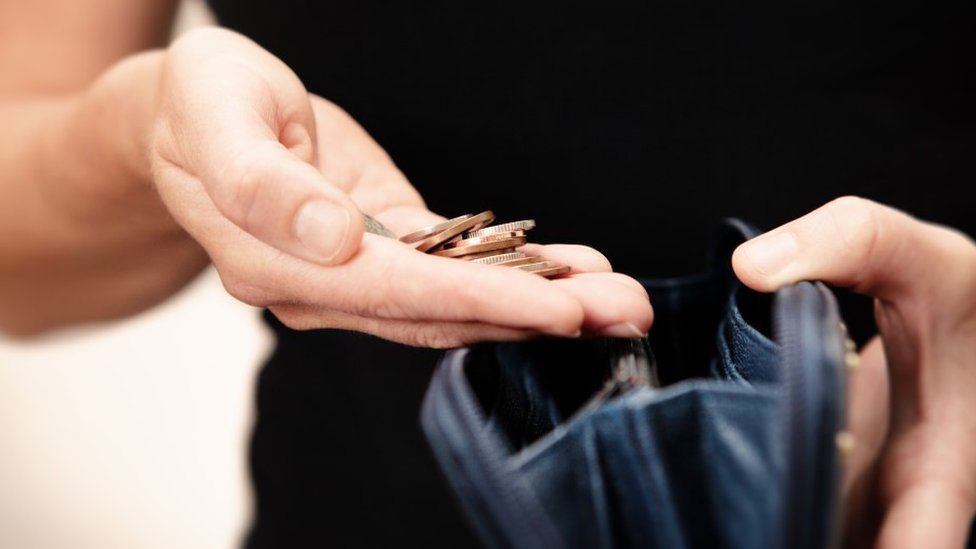Universal Credit: Devolved leaders call to keep £20 top-up
- Published

The first ministers of Northern Ireland, Scotland and Wales have called on Boris Johnson to reverse plans to end the universal credit uplift.
Chancellor Rishi Sunak plans to stop the extra £20-a-week payment in October.
In a letter to the prime minister, the leaders said the cut was happening as the country faces a "significant cost-of-living crisis".
It comes one month after devolved ministers jointly made the same call.
Universal credit, which is claimed by more than 5.5 million households in the UK, was introduced to replace six benefits and merge them into one benefit payment for working-age people.
The £20 top-up - which the chancellor said was only a temporary measure to help people through the pandemic - was extended by six months in March, but MPs across the political spectrum, along with charities and campaigners, have called for it to continue beyond the autumn.
The joint letter was signed by Northern Ireland first and deputy first ministers, Paul Givan and Michelle O'Neill, as well as Scotland's first minister, Nicola Sturgeon and Welsh counterpart, Mark Drakeford.
'Cost of living crisis'
They said there was "no rationale for cutting such crucial support at a point when people across the UK are facing an unprecedented squeeze on their household budgets".
"To support a meaningful recovery from this pandemic we must first ensure the needs of our most vulnerable are met," they wrote.
"This cut threatens to undermine the recovery by diminishing the capacity of six million people to make ends meet.
"It is not too late for you to reverse the decision to take money out of the pockets of the poorest in society at a time when they are facing a serious cost of living crisis."
First Minister Paul Givan said people were already starting to struggle.
"With furlough ended, food and energy costs on the rise and the impacts of the pandemic still being felt across society, household budgets are already under real pressure," he said.
Deputy First Minister Michelle O'Neill said the planned cut risks "plunging countless families deeper into poverty and hardship".
"While £20 per week may seem like a paltry sum to the British government, to many families it makes all the difference in their children going hungry and being kept warm," she said.
Stormont Finance Minister Conor Murphy said the government needed to realise that "hard-pressed working families and others who rely on benefits are continuing to struggle".
"They [the Conservative government] have stuck it to people in terms of National Insurance uplift to fund the NHS when they promised additional money for it," he told the BBC's Sunday Politics programme.
"We end up dealing with the consequences of bad decisions made by the Tory government and trying to find money from our own limited resources to try and pay welfare mitigations."
Dr Ciara Fitzpatrick, from the Ulster University, told BBC News NI that keeping the £20 a week uplift could make a big difference in some households.
"Organisations, such as the Joseph Rowntree Foundation, have evidence that the uplift has been the difference in somebody's life between heating and eating," she said.
"They have been just about able to just about make ends meet with that additional money, which has been found to go a long way in a household where there is poverty."
Related Topics
- Published30 August 2021
- Published29 September 2021
- Published29 September 2021